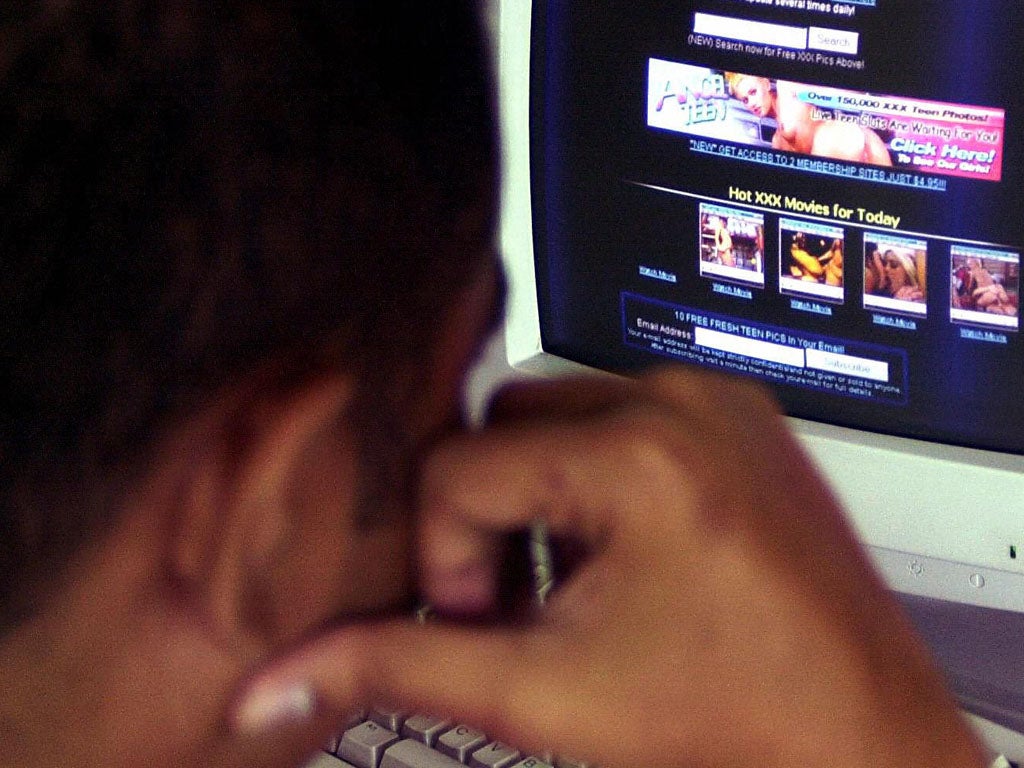Cameron is getting tough on internet porn, so is a Fantasy Tsar now going to decide what's acceptable?
It is dangerous to divide the world into the evil and the family-friendly

It took a while for the great children’s writer Jacqueline Wilson to get the hang of the internet and, when she did go online, her worst fears were confirmed. She typed into a search engine the name of one of her own novels, Bad Girls, and was startled by what appeared on her screen.
Since then, the pollution of the internet by its most popular product has grown worse. Parents have become concerned that their children are wandering through a wild west of perversity. In court cases involving the nastiest kind of crime, the accused has frequently been found to have been a regular visitor to the more repulsive types of websites.
Not before time, many would say, the Government is taking action, ramping up the campaign against the worst kind of pornography, involving children and violence against women, while also making access to any kind of sexual material more difficult by introducing a filter whose default position is, in the phrase of the week, “family friendly”. Those who wish their browsing to be unfiltered will be obliged to opt-in to pornography.
It is a clever, vote-winning conflation of two separate issues, placing the innocence of children beside the most extreme and unacceptable forms of human depravity. Only the most foolish of libertarians would argue against the moral intentions behind the new policy: to bring the full force of the law to bear against those who distribute or possess child or extreme pornography and, as a separate matter, to protect young viewers from graphic sexual content online.
The problem is in the detail. It is an important matter when a society imposes on citizens a device which censors as a matter of course the material being sent to computers. If you then add to that constraint wide-ranging legislation controlling what can be viewed at all, the first question that needs to be asked is: who decides what is legally acceptable? Presumably there will have to be some kind of Porn Board to resolve, for example, whether viewing films containing a rape scene – Straw Dogs, The Accused and countless others – should now be against the law.
Talking about the new legislation, David Cameron has included self-harm as an unacceptable fantasy, while anti-rape groups have, quite rightly, spoken out against the eroticisation of violence against women. Awkwardly, though, the fantasies of men and women are not black or white: all sorts of erotic variety is contained within their 50 shades of grey. Is the Government seriously saying that a Fantasy Tsar will be on hand to pronounce upon on what lurid expression of desire is permissible under law?
It is dangerous to divide the world into the evil and the family-friendly, and rather too easy to blame the internet for the wider problems of society. It is not pornography which is leading the assault on the innocence of childhood but our culture generally. When it comes to eroticising violence against women, mainstream TV and film have a far greater effect than grisly little websites.
Yet for some reason, we seem unwilling to recognise that the presentation of stalking and murder as Saturday night entertainment affects attitudes and behaviour. At a recent conference of television writers, I was startled to discover that there was far more concern about nudity and the objectification of women on TV than the voyeuristic depiction of murder and violence in series like The Fall.
When politicians start pronouncing on matters of morality as a parent, it is wise to be wary. No doubt the Prime Minister will strike a heroic pose as he stands up for family-friendly values against the evils of the internet, but the details of his deceptively sensible scheme need watching carefully. They will either be unworkable or repressive.
Angels, aliens – we all have our delusions
Now and then the British like to laugh at the gullibility of middle America. An astonishing proportion believe in aliens for example, or that the moon landing was a carefully planned hoax.
It is time for us to stop scoffing. A recent ICM poll has revealed that 31 per cent of Britons – and 41 per cent of British women – believe in the existence of angels on earth. A large proportion claim to have their own winged guardian sent from above looking over them.
This madness sells books, of course, but it also has a clutch of celebrities in its grip. Gemma Arterton believes that her grandmother sends her messages and leaves angelic feathers after a visit. Judy Finnigan has also found white feathers in her house, while Denzel Washington once saw an angel who looked rather like his sister, but with wings.
Psychiatrists have said that a belief in a personal guardian angel is the brain’s way of imposing a celestial order on life. Vanity might have something to do with it, too.
Twitter: @TerenceBlacker

Join our commenting forum
Join thought-provoking conversations, follow other Independent readers and see their replies